There are many reasons to own a surplus military rifle: they’re usually inexpensive, rugged, accurate, fire cheap ammunition, and are important pieces of history that will only grow in value with the passage of time.
The surplus military rifles that we are about to take a look at were once the standard issue infantry rifles for militaries all around the world. As such, they were and are well-built, rugged, accurate, and reliable firearms.
Sure, many of these rifles will be old (half a century or more, at least), but if you can find one in good condition (which isn’t difficult) that won’t matter. That’s also not to mention that these rifles are excellent pieces of history, so even if you don’t plan on using any of them for hunting or SHTF or any other practical purposes, they can still be wonderful additions to any gun collection.
Most military surplus guns are admittedly not as cheap today as they were ten or twenty or thirty years ago, but they are still widely available for reasonable prices and will continue to increase in value as time goes on. This means that they can be a great investment or a good choice as a budget rifle.
For example, back in the 1990s you could easily buy a Mosin Nagant rifle for $50 or less. Today, a Mosin Nagant will go for around $200 or $300. That’s still great for somebody on a budget, but in ten or twenty more years the Mosin Nagant is very likely to only continue to increase in price and value. Who knows, maybe one day the Mosin Nagant will be viewed as such an important piece of military history and demand could increase to the point where they will cost over $1,000 each.
Beyond their historical value, the military surplus guns that we are about to go over will also be great for numerous practical applications, such as casual shooting on the range, hunting big game animals, as a durable and dependable weapon to have in an SHTF or grid down disaster situation, or even for defense.
Here are the top five best military surplus rifles that you can own, presented in alphabetical order:
Lee Enfield
The Lee Enfield bolt action rifle in .303 British and its many variants served as the standard issue infantry rifle for the United Kingdom and its Commonwealth nations for over half a century. Today, there are countless numbers of these venerable weapons floating around the world, both in their original military and sporterized configurations.
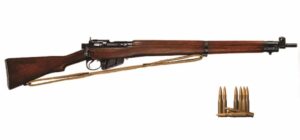
Lee Enfields are quite common in countries with heavy British influence, such as Canada and Australia. There are also thousands if not millions of these rifles floating around on the surplus market in the United States; depending on its condition, you can easily find a Lee Enfield for anywhere from the $400 to $800 range.
Throughout its history, since its introduction in the mid-1890s, the Lee Enfield has been used on the battlefields of World War I and World War II and on big game hunting expeditions across the world. They have seen service from the muddy trenches of France to the arid Australian Outback to the savannas of Africa to the jungles of South America to the tundras and arctic fjords of northern Canada and Alaska. Needless to say, the Lee Enfield is a very durable rifle that can sustain a lot of abuse and continue to function.
A big advantage to the Lee Enfield over most other military surplus bolt action rifles is its magazine capacity. Whereas most surplus rifles such as the Mauser K98 or the Mosin Nagant hold five rounds in the magazine, the Lee Enfield holds ten rounds. This provided British troops with a significant advantage during both World Wars, and even today ten rounds would definitely be preferable to five in a combat situation.
Last but not least, the .303 British round is a very versatile caliber that can bring down just about any kind of big game. In the United States, it would be an excellent caliber to use for everything from deer to wild boar to black bear to elk and even moose.
M1 Garand
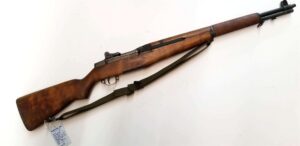
The M1 Garand is easily one of the most expensive surplus military rifles that you can buy today, at over a thousand dollars regularly per weapon. But if you can afford it, the M1 Garand will be an excellent addition to any gun collection due to its important role in American military history and superb quality.
The M1 truly was a revolutionary rifle and one of the most important firearms ever built, and remains popular amongst American shooters today. Spare parts are not that hard to find either.
As a semi-automatic weapon, it was accepted as the standard issue U.S. infantry rifle in an era where bolt action rifles were the norm, giving the American soldier a definitive advantage on the battlefield over his German, Italian, or Japanese counterparts. Most M1 Garands used in World War II were manufactured either by Winchester or Springfield, both of which are very reputable companies still making weapons today.
The M1 loads via a disposable en bloc clip (and it is a clip and not a magazine) that holds eight rounds of .30-06 Springfield ammunition. .30-06 is an incredibly common and affordable round in the United Sates and is widely available across the country. It’s also more than capable of bringing down just about any kind of big game, and is regularly used on deer, bear, boar, elk, and moose across the country.
Mauser 1898
If there is one bolt action rifle that truly revolutionized the bolt action rifle design in general, it’s the Mauser 1898. The action used in the 1898 has been copied by numerous other rifle manufacturers, as the action is both incredibly smooth and durable. The popular Springfield 1903 and Winchester Model 70 hunting rifles, for instance, are basically copied from the original Mauser 1898 design.
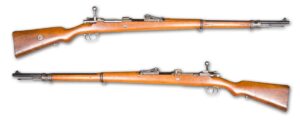
Chambered for the 8mm Mauser round, the 1898 eventually developed into the Mauser Karabiner 98k rifle, which was the service rifle for the German army in World War II. The 8mm Mauser is also a great round to use for hunting deer and elk.
Mauser 1898’s can be found on the surplus market for anywhere for a few hundred dollars up to a thousand or more, depending on the condition. A genuine Karabiner 98k will always be significantly more expensive than a standard Mauser 1898. You can also get Mauser rifles in both their original military and modernized sporterized configurations. Another option for a Mauser surplus rifle is the Yugo M48, which was built in Yugoslavia after World War II and is typically very affordable at less than five hundred dollars each.
Mosin Nagant
Inarguably the most popular surplus military rifle ever made is the Mosin Nagant in 7.62x54r. The Mosin Nagant served as the standard rifle for Russia (later the Soviet Union) from the 1890s up to the late 1940s, when it was replaced by the AK-47 and SKS. Mosin Nagants have also been widely distributed throughout the world, and to this day are seeing service in the Syrian Civil War.
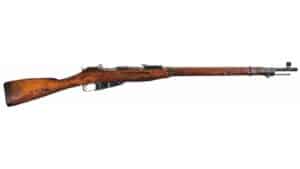
In the 1980s and 1990s, Mosin Nagant rifles flooded the American market, and they could be bought incredibly cheaply for as little as $100 for a box of three. Today, Mosin Nagants can be had for the $200 to $300 range, and the value is only to continue to increase.
Mosin Nagants aren’t just popular for their affordability. They’ve also proven to be incredibly successful amongst American shooters due to the fact that they are very rugged, durable, come with a vast array of aftermarket parts, and are surprisingly accurate for a surplus rifle. The Mosin Nagant is a very crudely made firearm, but it’s also well-built and can take a lot of abuse. The 7.62x54r round is ballistically nearly identical to the .30-06 Springfield, and can drop anything in North America.
The M91/30 is the most popular variant, but shorter M38 and M44 carbine variants are also available. The carbine versions are typically more expensive, but far handier to have out in the brush or as a truck gun.
SKS
The SKS is a semi-automatic carbine chambered for the 7.62x39mm round, which is the same bullet that the AK-47 fires and is ballistically very similar to the .30-30 Winchester (which is a great deer round).
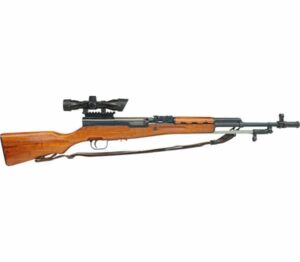
Like the Mosin Nagants, the SKS flooded the American market in the 1980s and 1990s and used to be incredibly cheap at less than $100 a rifle. Today, an SKS will typically cost between $350 to $600, depending on the condition.
The SKS has many practical benefits beyond its historical value. It’s a great rifle to use for hunting deer and pronghorn, and the short and lightweight design of the rifle makes it handy to haul around in the woods as well.
The SKS loads via a ten round stripper clip, although it can also be fed rounds individually or loaded with a detachable box magazine.
There are a myriad of aftermarket accessories for the weapon, including tactical stocks and magazines, and the rifle can be easily customized to your desire.
Conclusion
Remember that each of the above surplus military rifles are only going to increase in value as time goes on, so they will be a wise investment beyond their practical uses.
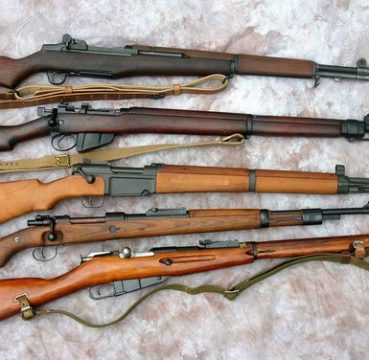

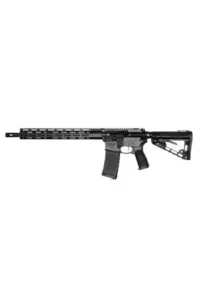
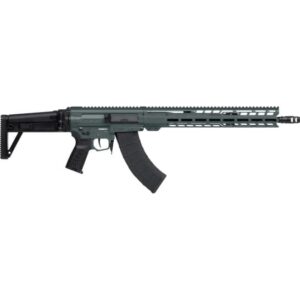
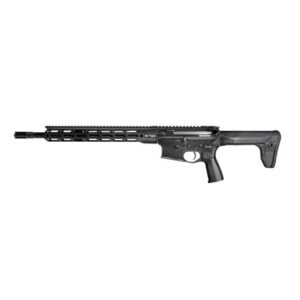
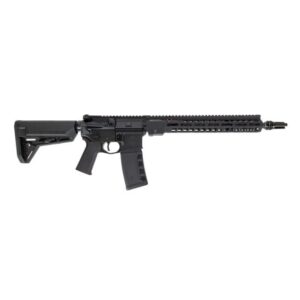
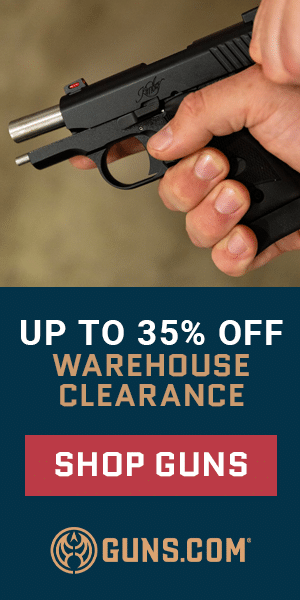



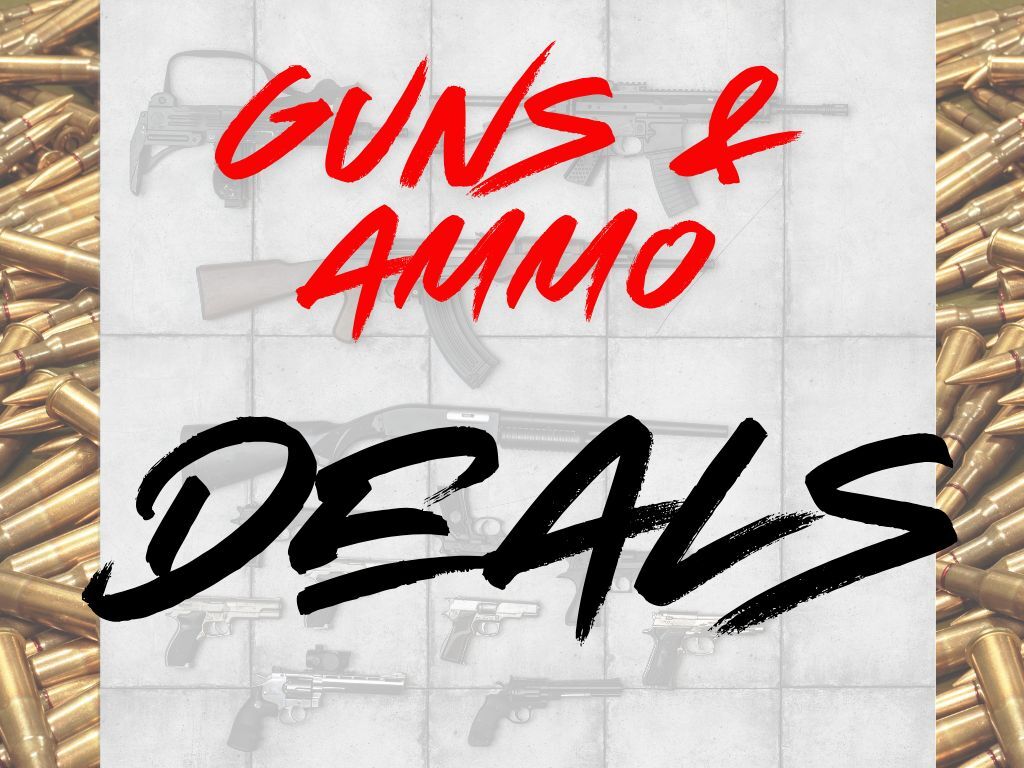
2 Responses
I don’t see where any of these are a good choice as a “budget rifle” except perhaps the Mosin aka “garbage rod” and that’s if on sale somewhere. There are modern more evolved options out there for far less money.
The main intent of the article was to highlight Military Surplus rifles. Agree there are more evolved options out there.